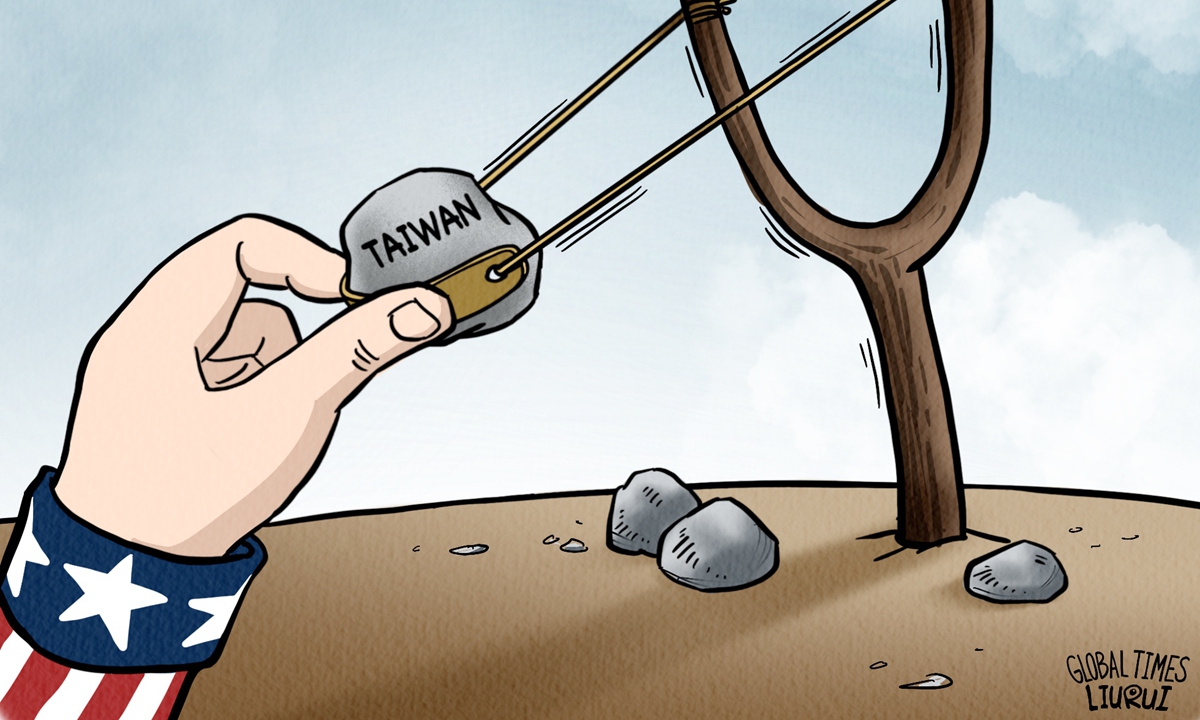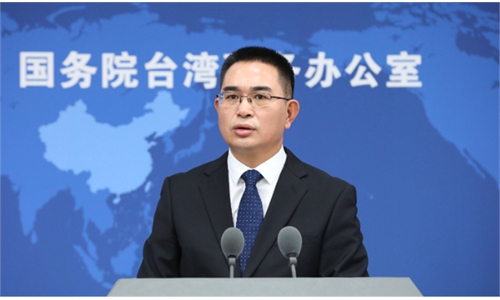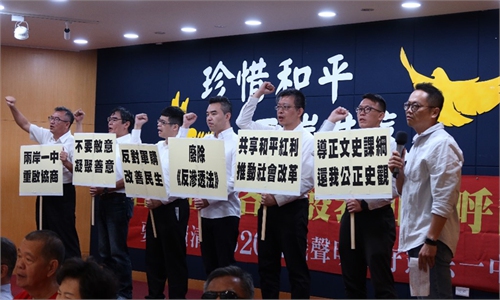Certain US politicians see ‘Taiwan independence’ as a fat money-making opportunity

Illustration: Liu Rui/GT
The tactic of using the power of money to promote "Taiwan independence" is a common strategy employed by some forces in the international community. Certain members of the US Congress do not have the courage to openly support "Taiwan independence" and risk crossing China's red line. However, they have no qualms about leveraging the Taiwan question for personal gains. They have transformed the concept of "Taiwan independence" into a lucrative business opportunity, with American taxpayers being the unwitting victims.A recent example of this opportunism was highlighted in a report by the South China Morning Post. It revealed that Representative Raja Krishnamoorthi, Democrat of Illinois and ranking member of the House select committee on China, who traveled with then speaker Nancy Pelosi as she paid a sneaky visit to the Taiwan island in 2022, is promoting a bill called the "Taiwan Allies Fund" which would authorize $120 million over three years. This proposed legislation represents the latest effort of certain US politicians to profit from "Taiwan independence."
According to the report, the bill aims to boost Taiwan's space on the international stage. The fund "may be used in countries that maintain official relations with Taiwan or have meaningfully strengthened unofficial relations with Taiwan."
People may naturally think that this bill is another attempt by the US to systematically worsen its relations with China. This approach is not clever. By promoting the "Taiwan Allies Fund," the US is essentially bribing countries to "strengthen Taiwan's global network of friends." However, if one digs deeper how the US works, as well as the actual operation of Taiwan authorities on the relevant issues, it is clear what members of the US Congress are doing.
On the one hand, they are trying to divide the spoils of the US coffers under various pretexts, and on the other hand, they are whistling at certain groups in Taiwan island to loot money.
The bill proposes a seemingly huge project with unmatched expenses. It plans to authorize $120 million over three years, with $40 million designated for each fiscal year. It also stipulates that a single country may not receive more than $5 million. For countries that still maintain the "diplomatic relations" with the Taiwan region, this amount of funds is impossible to accomplish any of the goals outlined in the bill. Remember the completion of a high-speed rail bridge of 500 meters which has cost the US $11 billion? The bill's sponsor doesn't really expect to implement anything with the amount of $5 million.
Second, the bill blurs supposedly clear-cut figures on cost-sharing. The money that can be the spoils for the US Congress is at most $120 million, the real huge profits are from the island of Taiwan. According to the cost-sharing provisions, Taiwan should contribute commensurate assistance to countries described in the bill. It's widely known that there could be no cap for the cost-sharing of any project in the bill, and then the US can make as much demand as it wants. This practice has been commonly seen in various malpractices involving the so-called effort to enlarge the international space of the Taiwan region.
Third, the bill is believed to provide opportunities for money laundering. The building of capacity in Taiwan island to counter Chinese mainland's influence through the NGOs has always been the severely afflicted area of corruption. Through the bill, the US will fully cooperate with the "Taiwan independence" secessionist forces who are well versed in money laundering, to make huge profits for all kinds of stakeholders based on the mature industry chains.
The latest bill sponsored by individual US Congressman shows that some US politicians have been treating "Taiwan independence" as a business opportunity. In addition to triggering China's strong opposition, the bill will inevitably lead to corruption scandals in the future. It will also make more people realize that only through clear and unequivocal support for China's peaceful reunification as soon as possible can we minimize the space for such scandalous acts, and systematically enhance the wellbeing and satisfaction of all peoples of the world, including the people of the US.
The author is director of the Research Institution for Global Cyberspace Governance at Fudan University. opinion@globaltimes.com.cn


